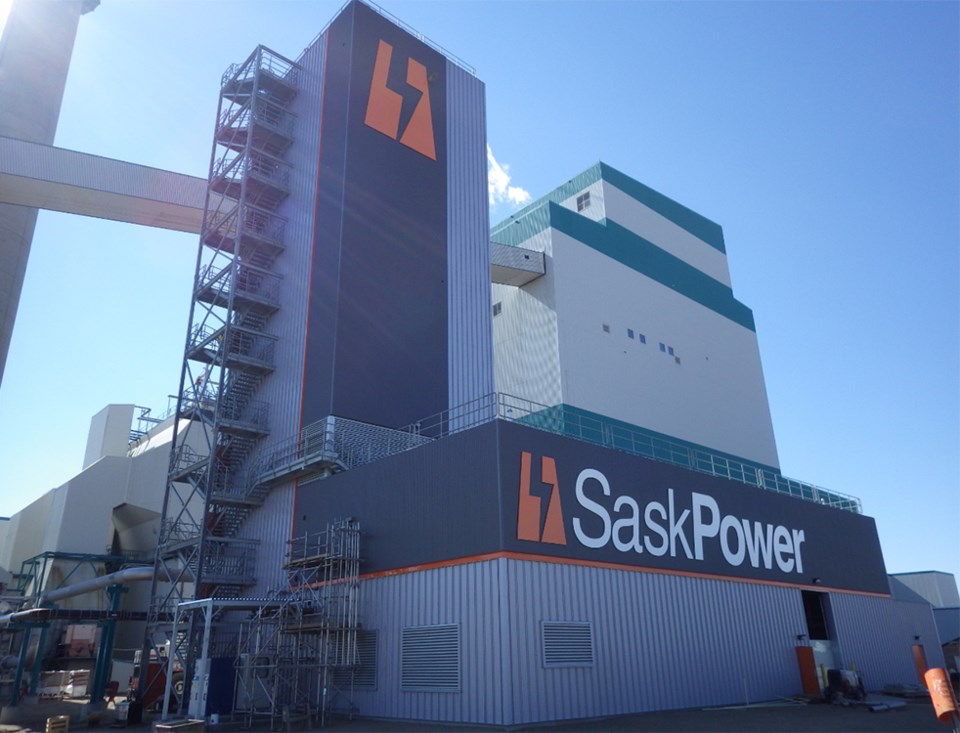SaskPower released its report on alternative electrical energy sources on Nov. 23, stating it was committed to reducing emissions for an environmentally sustainable future.
The corporation has set a target to double the percentage of renewable electricity generation capacity in Saskatchewan by 2030.
The announcement was made by Bill Boyd, Minister responsible for SaskPower and Mike Marsh, SaskPower’s president and CEO.
The opposition New Democratic Party immediately jumped on the statements, stating the goal was already a watered down version since it set a ceiling instead of a minimum goal for generating power from greener sources.
“An objective of 50 per cent renewable power by 2030 is ambitious, but I’m confident SaskPower can meet the target by taking an ‘all of the above’ approach to planning,” said Boyd. “That means a major expansion of wind power augmented by other renewables, such as solar, biomass, geothermal and hydro, to go along with the world leading Boundary Dam Unit 3 carbon capture project and more natural gas generation. This is the framework for a responsible clean energy plan that will reduce greenhouse gas emissions while ensuring Saskatchewan has a reliable affordable supply of electricity to come.”
About 25 per cent of Saskatchewan’s electrical generation capacity comes from renewable energy right now. About 20 per cent of that is hydro and five per cent (220 megawatts) from wind. Three new wind power projects have already been approved or are in development and they will add another 207 MW by 2030.
In the meantime, a statement came from SaskPower on Monday, noting that they had successfully tested the carbon capture system at BD3 to its maximum capacity of 3,240 tonnes per day and that 40,000 more tonnes of carbon dioxide had been sequestered, bringing the total volume captured to date to 440,000 tonnes. They added this was a significant milestone that confirms the system can operate at designed capacity.
It will now use this experience and financial data from this ongoing pilot project to inform future decisions on this particular type of greenhouse gas controls.
The Crown corporation said it is planning to move forward with utility scale solar power generation which will include at least 60 MW generated by this method with competitive procurement beginning next year. In an effort to expand the number of customers generating solar power, the corporation will review its net metering program, which offers customers generating up to 100 kilowatts of renewable energy technology the opportunity to get credit for the unused portion of their excess electricity.
SaskPower has invested in geothermal technology with pre-feasibility studies being undertaken in areas around Estevan to evaluate its potential. The company said they were optimistic it can be a part of a diversified energy future, and they will continue to work with the industry to determine how the technology could work within the current system.
SaskPower’s plans to expand wind power could make it a leader in Canada, but Marsh said that adding wind and other renewables in a way that’s affordable for customers is what’s important.
“The key here is that wind power has become much more economic over the years as the technology has developed. We’ve been able to understand how wind operates on our grid so we can add it in a way that balances our priorities of maintaining sustainable and diversified generation mix with the delivery of reliable and cost-effective power to our customers.” Marsh added, “we’ll take that same approach to adding other clean options to make our renewables target of up to 50 per cent by 2030.”
To meet the target, the corporation will be moving toward procurement of another 100 MW of wind generation in 2016 and will develop up to 800 MW of new wind generation between 2019 and 2030.
“SaskPower’s new wind energy targets represent an important step forward for wind energy in Saskatchewan and will enable the province to capture more of its plentiful and cost-effective wind energy resources,” said Robert Hornung, president of the Canadian Wind Energy Association (CanWEA). He added that the planned additions will attract significant interest and ensure a competitive process to produce lower cost clean electricity.
This process build on SaskPower’s carbon capture and storage initiatives which the corporation said it will continue to exploit in order to determine how to replace conventional coal-fired electricity generation in light of existing and emerging greenhouse gas emission regulations.
By working with the private sector, SaskPower said that by 2024, total wind power generation capacity will be approaching 730 MW or about 15 per cent of capacity.
One megawatt of baseload electrical power is enough to power about 1,000 homes while one megawatt of wind power is enough to power about 400 homes.




